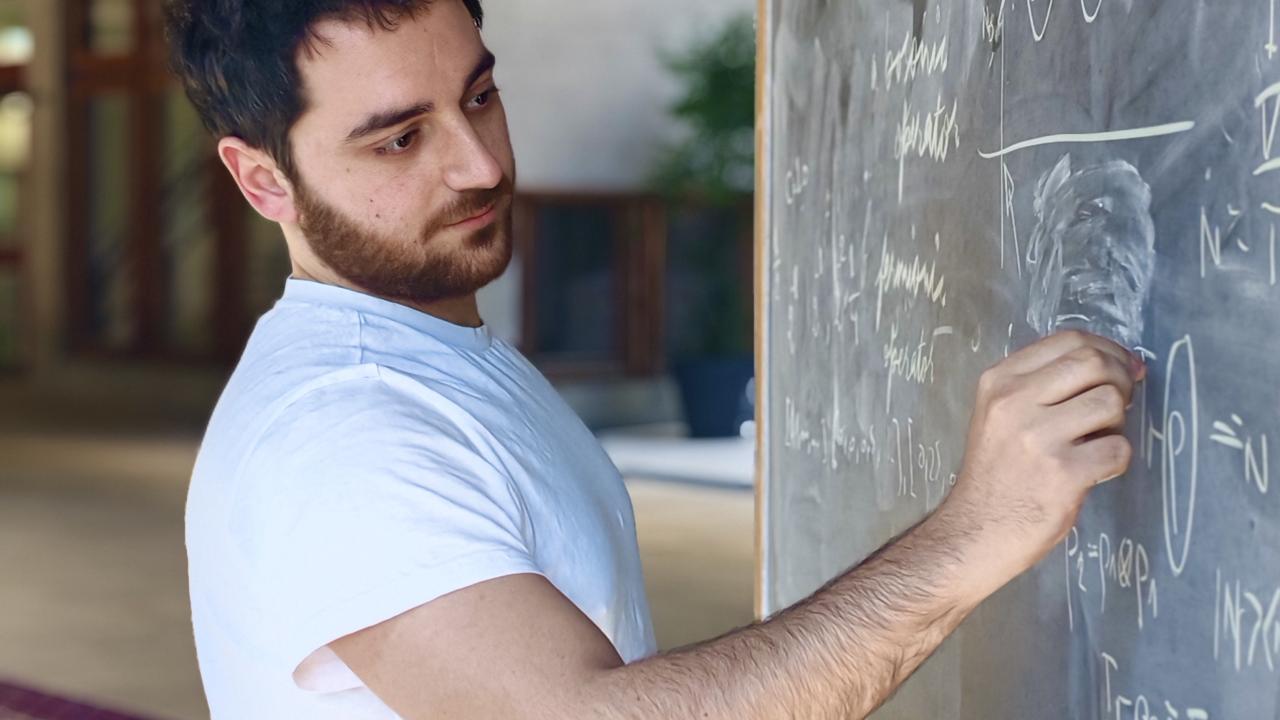
The journey from student to academic researcher can take many forms, with intersections between computing and traditional scientific fields becoming evermore important. Nicola Aladrah, ICTP Postgraduate Diploma graduate and current Master’s in High Performance Computing student, talks about his path to research.
Tell us about yourself.
I'm from Syria, Damascus, but I lived in Homs in the center of Syria. I studied there up to my master's degree in theoretical physics, then I worked on a topic related to relativistic quantum chemistry during my thesis. Since we didn't have high energy physics in Syria, that was one of the biggest motivations to start the Postgraduate Diploma at ICTP, as it offered advanced courses in multiple topics.
What happened when you came for the Diploma?
It was very hard when I came here from Syria. Now, the situation in Syria has changed, but when I came here three years ago, there was still the war. The borders were not very safe. We didn't have working airports in Syria, so I travelled by car to Lebanon, and from Lebanon I flew to Italy. That was not easy, even unsafe.
When I got here, there were new challenges. You have to consider the not-so-strong background that students coming here can have. It's a shock at the beginning to have to be so fast to capture all of the information given to you. This means that you have to develop a good working mindset, and you cannot depend on the way you were thinking before.
Can you give an example?
Okay, big topics like quantum field theory, which would take a full semester normally, are taught in about a month. This makes the course very hard. A strong aspect of the course is that the professors were good at addressing how to find solutions using their own experience on how to attack a problem. Books on a subject only give you so much help, so this was useful. The other thing about the Diploma is that everyone who does it wants something more in their life, and has worked hard to come here.
What did you focus on in the Diploma?
I worked on my thesis in high energy physics with Pavel Putrov, and afterwards, I continued to work with the same professor for a year after I graduated. The thesis was related to the applications of conformal field theory, which was something I would never have dreamed of working on before the Diploma. That’s something the course did for me; it opened up a new field.
I found something in that project that was related to computing, and I thought it was very nice that high energy physics might overlap so much with programming.
How much do high energy physics and programming overlap right now?
More than before. Higgs Boson detection is possible due to studies related to machine learning. How much more will there be in the future? I believe a lot, because this is one of the opportunities that could be used a lot more than it is. Pushing the theory forward is very important, but now there is so much data, and we need to analyze it.
I believe one of the main topics in high energy physics in the future will be this overlap between theoretical physics and high-performance computing. This is one of the main reasons I’m now doing a Master’s in High Performance Computing (MHPC) with ICTP and SISSA. What’s nice about the program is that people coming from a science background can go back to research with important skills that are needed in their field. Also, those who want to move into industry can do that.
The course is hard in the same sense as the Diploma, because, again, it’s very compact, with a lot of topics. But the reason this is going smoothly for me, if I can say that, is that I knew the right mindset to go through it.
So having done the Diploma helped you on the Master’s course?
Very much.
Where do you see yourself in the next few years?
I would like to take all of these computational skills and use them in high energy physics, as now I can see a little more clearly the gaps in the field they could be applied to. I believe in five years from now, I will be in high energy physics research and contributing from this programming perspective.
Thank you Nicola for talking to us!
















